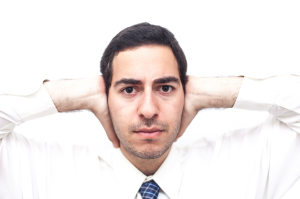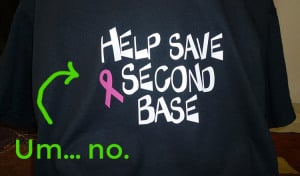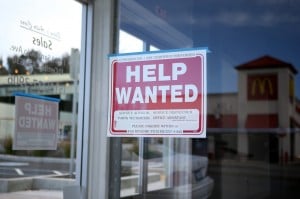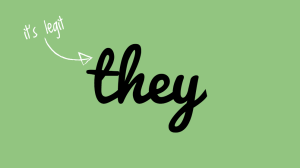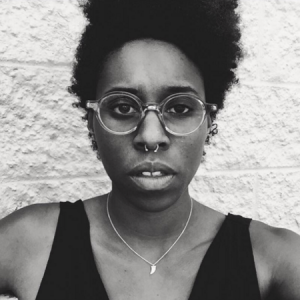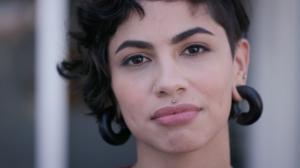
A tissue box in a dark room. Source: Huffington Post
Years ago, in college, I participated in a “diversity training” simulation for student leaders. We were assigned an identity and treated accordingly in the “game.”
The point was for us to experience discrimination – problematic in and of itself.
The game is clearly designed to benefit folks who are most privileged, not those of us who suffer various forms of oppression on a daily basis.
In an oversight, one of the facilitators gave me the badge of the identities I already have – a Black, queer person. And as I moved through the two-hour segment hearing every racial microaggression imaginable, being “arrested” and thrown in “jail” when I expressed very real frustration, there was no “learning” for me.
And none of the facilitators – all but one of them white – stopped the game or interfered. They continued their “act” of anti-Blackness until I sat in the corner, waiting for the game to be over.
Weeks after this training, when I finally got the opportunity to provide feedback about the experience, it was the white woman who’d given me the badge that was upset.
While I sat there watching the room fall silent, watching her burst into tears as she choked through her apology to me, watching as the compassion on the faces in the room shifted towards her, listening to the cooing and comforting “It’s okay” and “You didn’t mean it,” I couldn’t hold space for it.
I got up and left the room.
I could understand why she was upset. Making mistakes and being asked to apologize for those mistakes is upsetting. But it wasn’t only the crying that bothered me – it was how and where.
I was eighteen and trying to make sense of my Black identity in a place where there were so few Black faces. I was just starting to have conversations about power and privilege, but even then, the crying didn’t sit right with me.
The harm had been done to me. The racist shit had been said to me.
But all it took to erase her contributions to legacies of systemic oppression and racialized trauma was a sobbing heap of white women’s tears.
When I returned to the room of thirty folks, most of them white, very few of them checked in with me. Instead, they shared how inspired and surprised they were at the woman’s vulnerability and strength.
I learned, in this moment, that my experiences and feelings were no match for the pain of white folks being called out on their racism.
I learned, again, that I’m expected to hold not only my hurt and frustration and anger from daily encounters of racism and other oppressions, but also leave room for – and even prioritize – white anger and guilt.
I learned, in this moment and countless others since then, that I can’t and won’t prioritize white tears, anger, and guilt. Here are a few reasons why.
1. Having Emotions Validated Is a Direct Example of Privilege
As I watched the woman who was, at the time, my mentor, break into tears, I did feel compassion. I’m a deeply empathetic person, so the entire situation was painful for multiple reasons.
For me, the conversation about “white tears” isn’t about denying white folks humanity or their own personal hardships – it’s about the power dynamics, deflection, and even gaslighting that can happen.
It’s about asking the question, “What would the response be if I had shared my perspective and broken down?”
Too often, people of color who emotionally share about the realities of our lives and our experiences of racism are told that we are the problem, or probably misunderstood what happened, or any other excuse that lets racism and white privilege off the hook.
In this example and countless others since, I’ve learned that white folks usually receive affirmation or comfort when their problematic behavior has been called out, especially in mostly white spaces.
When this white woman cried, it was the end of any public discussion around accountability. She was immediately forgiven by those in the room; meanwhile, my trust of her was further damaged.
The simple ability to publicly display emotions and have those emotions validated – is a direct example of white privilege.
2. It’s About Deflection – And Everything But Accepting Accountability
After the incident, I began to blame myself and even felt bad that I’d “made” the woman cry.
Why didn’t I say anything during the game? Why did it take so long to say anything about it? It was clearly a mistake, so why do I feel so bad about it?
And white folks around me echoed these thoughts and continually came to her defense, explaining her intentions, when I expressed discomfort.
I was “making a bigger deal out of it than needed to be made.”
I recognize this now as gaslighting – I was being made to doubt my own feelings and experience because they were inconvenient and uncomfortable to those with the power in this situation.
I also came to realize that I didn’t actually care what the intentions were. Because whether it’s done intentionally or not, there are several emotionally abusive tactics that white folks use to deny the existence and impact of racism – and especially any responsibility in it:
There’s the crying and outrage and insistence that “I’m one of the good ones!”
There’s the immediate need to equate being called out with being oppressed: “You’re racist for calling me racist!”
There’s the apology complete with a few “I didn’t mean its” and other statements that try to lessen impact.
Each of these are about deflection and not wanting to be viewed as a “bad person.” Each of these are emotionally manipulative and result in people of color feeling further silenced and victimized – even by those who’d claim to support our liberation.
White folks who are interested in being truly accountable need to be open to first listening, and not immediately making the situation about them or how inclusive they are.
3. Guilt Doesn’t Change Anything
When I work with groups of college students and introduce the topic of white privilege – anger, guilt, and frustration often result. Without a doubt, at some point, a white student will leave the discussion in tears, feeling that it is no longer a “safe space” for them.
I’d asked them to think about their part in perpetuating systems of racism and oppression. And when I brought up white privilege, it felt like I was blaming them for something they “didn’t do,” something they weren’t even aware of. Their family didn’t even own slaves; they were good white people who celebrated diversity.
For most of us, the idea of causing harm or contributing to oppression – whether intentionally or not, feels terrible. We may feel guilty and angry and attacked. But the ability to navigate “safety” or what is “comfortable” for us is privilege, plain and simple.
And when white folks cry, become defensive, or express anger in response to even discussing racism, they are (often unknowingly) reasserting dominance and privilege.
While guilt is an understandable response, it also puts a stopper on personal responsibility. I can feel bad about my able-bodied privilege all I want to, but guilt isn’t going to change my ableist behavior. Only directly taking responsibility for and beginning to change those behaviors will do that.
Only by accepting accountability for our privilege can we change anything. Being more upset about being called out on racism than the oppression of people of color doesn’t actually allow anything to change.
Guilt doesn’t build solidarity. Guilt isn’t going to evoke sympathy from groups of oppressed people. Guilt shouldn’t get to put the important work and conversations about power and racism on hold. And it shouldn’t be expected that people of color hold that guilt – we are often holding enough already.
4. People of Color Are Already Carrying A Lot
The morning after the Baltimore uprisings, I was in an emotional hangover. I’d spent the previous sleepless night crying and altogether enraged. When I walked into a team meeting at work, I couldn’t shake the feeling.
I felt numb, distant from the surface-level conversations around me, when I felt a hand on my shoulder.
A white colleague approached me with caring concern, asked me if I was alright, and gave me her personal cell phone number. She said something along the lines of “I don’t understand exactly how you’re feeling, but I’m here if you need to talk.”
And she was right – she didn’t know how I was feeling, and that acknowledgment made me breathe just a little bit easier. She didn’t cry in sympathy when I mentioned Freddie Gray’s name – she knew that, in this moment, I was carrying a lot that she could not understand, but made herself available to listen and learn.
This simple but profound act still sticks in my mind because it is so rare to my experience.
Our pleas for our lives to matter have often been met with an eyeroll and the insistence that “All lives matter!” from white folks.
When we share our experiences at the hands of white supremacy we are told to “take responsibility” and stop “blaming racism for all of our problems.”
The mass media seems fixed on dismissing the violence against us – the Charleston massacre was an “attack on religion, not on race.”
We not only carry all of this, we also carry the pain of being dismissed and being repeatedly told to get over it. And I say this not to suggest that white folks are also not carrying pain and trauma from other areas of their lives, I’m saying that racism is not one of those experiences.
So when people of color dismiss white tears and white guilt – it isn’t necessarily a lack of compassion – it is about survival and emotional capacity.
The Conversation Must Continue
In difficult conversations about race and racism, where emotions run high and ugliness is brought to the forefront, it’s understandable for us to have emotional reactions.
The realities and pains of racism and other forms of oppression should be upsetting. The concept of “white tears” isn’t discouraging white folks from processing emotions – it’s more about how.
When a white person cries or becomes angry, it’s often the end of whatever discussion was happening – particularly around race. But even through discomfort and guilt and shame, the conversation must continue.
White folks should process feelings and defensiveness with other white folks – not with people of color who are expressing that they’ve been harmed.
Accountability often begins by simply accepting that none of us are perfect, and are going to mess up. It doesn’t mean we’re terrible people. It means that the work of dismantling oppression is never over.
I hope for communities where there is space for all feelings and where no experience is invalidated, but that requires acknowledgement of privilege and accountability when harm has been done.
[do_widget id=’text-101′]
Michal “MJ” Jones is a Contributing Writer for Everyday Feminism and is an awkward, Black, non-binary queer educator, activist, and musician writing to you from Oakland, CA. They earned their BA in Sociology from Sonoma State University, and went on to earn an MA in Student Development Administration from Seattle University and remain committed to improving access and retention to higher education. Listen to their music or read more of their work. Follow them on Twitter @JustSayMJ and read their Everyday Feminism articles here.
Search our 3000+ articles!
Read our articles about:
Our online racial justice training
Used by hundreds of universities, non-profits, and businesses.
Click to learn more








